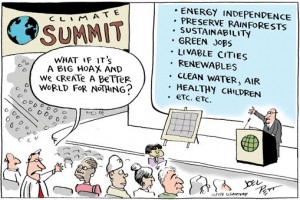Dickinson to Durban » Climate Change, Environmental Politics » Understanding leads to action.
Understanding leads to action.
The outcomes of South Africa’s Cities for Climate Protection campaign (CCP) which was initiated in 2000 and ended in 2006 showed great results for both the cities’ development and for climate change mitigation efforts. Benefits of the campaign included a detailed energy and emissions inventory which is useful in gauging where improvements can be made. Through the results of this inventory a buildings energy efficiency pilot project was launched, part of this project included auditing of municipal buildings which showed great capacity for efficiency gains. From these projects, however, a disconnect between these efforts and climate change efforts surfaced. Due to the local economic benefits of this project and the focused effort of involved staff in meeting funding and administration guidelines the focus of the project on “climate change” efforts shifted to the “local development” efforts. As a result very little “internal institutional momentum and knowledge was built around the issue of climate change per se.”
This is not necessarily a bad thing. As my classmate Dani Thompson explains, South Africa has more pressing, localized issues to deal with than climate change. A few she lists from a WRI chapter (1) by Harold Winkler, “Sustainable Development Policies and Measures,” are: poverty eradication, job creation, food security, access to renewable/efficient energy, transportation, drinking water, education, health service, and land use/availability. Especially after apartheid was removed and the new government was formed these issues were the most prevalent. Therefore, environmental and climate change efforts that were made usually had a more direct impact on any of the things listed and were occurring only for that localized reason.
As is clear, sometimes climate change can be mititgated through the handling of other social problems (ie. the reduction of air pollution for health reasons, the improvement of energy efficiency in order to save money, etc.). However, this system does not move fast enough or direct enough to cause the reductions that are necessary in developing countries like South Africa. We need to spend time and money allowing governments to perform research to better understand climate change and the effect it will have on their individual governments. Through this effort it will become clear that not only are climate change efforts in the self interest of these governments but they can be done in ways that can also allow economies to develop. This understanding will provide incentive and motivation for governments to link climate change and development efforts and begin to put big dents in carbon emissions.
Main Source: Debra Roberts. “Thinking globally, acting locally – institutionalizing climate change at the local government level in Durban, South Africa.”
Cited: (1) Winkler, Harald. “Sustainable Development Policies and Measures.” World Resources Institute. 2002. pp 61-89.
Filed under: Climate Change, Environmental Politics · Tags: climate change, debra roberts, Emily Bowie, priorities, South Africa









Recent Comments